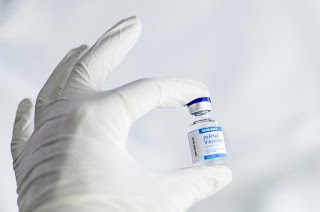COVID Natural Immunity: What You Should Know
What is immunity?
Immunity is your body’s capacity to prevent you from becoming ill when you are exposed to an infectious agent (“germ”) such as a bacterium, virus, parasite or fungus.
Immunity is a complicated process that includes a lot of moving elements. Your body develops a range of distinct cells that combat invading bacteria. Some of them release unique proteins called antibodies into your blood stream. These antibody generating cells may “remember” a specific germ so they can identify its existence if it returns and create antibodies to fight it.
What is natural immunity?
Natural immunity is the antibody defense your body generates against a pathogen after you’ve been infected with it. Natural immunity varies depending on the individual and the germ. For example, those who have had the measles are not likely to acquire it again, but this is not the true for every illness. A modest episode of a disease may not result in robust natural immunity. New findings reveal that natural immunity to the coronavirus decreases (wanes) over time, and does so quicker than protection induced by COVID-19 immunization.
Read Also : Immunotherapy with standard treatment improves survival in patients with head and neck cancer.
What is vaccine-induced immunity for COVID-19?
Vaccine-induced immunity is what we obtain by getting completely vaccinated with an approved or authorized COVID-19 vaccine. Research suggests that the protection from the vaccinations may fade with time therefore further doses (boosters) are now permitted for select groups. These boosters may prolong the excellent protection conferred by the COVID-19 vaccinations.
If I have natural immunity do I still need a COVID vaccine?
Yes, the COVID-19 immunizations are advised, even if you had COVID-19. At now, research from Johns Hopkins Medicine and the U.S. Centers for Disease Control and Prevention (CDC) recommends obtaining a COVID-19 vaccination as the greatest protection against acquiring COVID-19, whether you have previously had the virus or not.
Here are current research findings that suggest being vaccinated even if you have previously had COVID-19:
Vaccines add protection.
- The U.S. Centers for Disease Control and Prevention (CDC) issued a paper on Oct. 29, 2021, that states being vaccinated for the coronavirus after you’ve previously had COVID-19 considerably boosts your immune protection and further minimizes your chance of reinfection.
- A research released in August 2021 suggests that if you have COVID-19 previously and are not vaccinated, your chance of being re-infected is more than two times greater than for individuals who were vaccinated after having COVID-19.
- Another research released on Nov. 5, 2021, by the U.S. Centers for Disease Control and Prevention (CDC) looked at persons hospitalized with COVID-like disease between January and September 2021. This research indicated that the odds of these individuals testing positive for COVID-19 were 5.49 times greater in unvaccinated persons who had COVID-19 in the past than they were for those who had been vaccinated for COVID and had not had an infection previously.
- A research by the CDC in September 2021 found that nearly one-third of patients with COVID-19 infections in the study had no apparent natural immunity.
Should I wait off obtaining a COVID vaccination to see if there is new research on natural immunity?
- Getting COVID-19 is exceedingly hazardous and may result in long-term sickness, persistent organ damage, hospitalization or even death.
- Even if your personal infection is modest, you may pass it to others who may suffer serious disease and death.
- The authorized and recommended vaccinations are safe and very effective against serious disease or death due to COVID.
- Risks of COVID-19 vaccination adverse effects are quite minimal.
